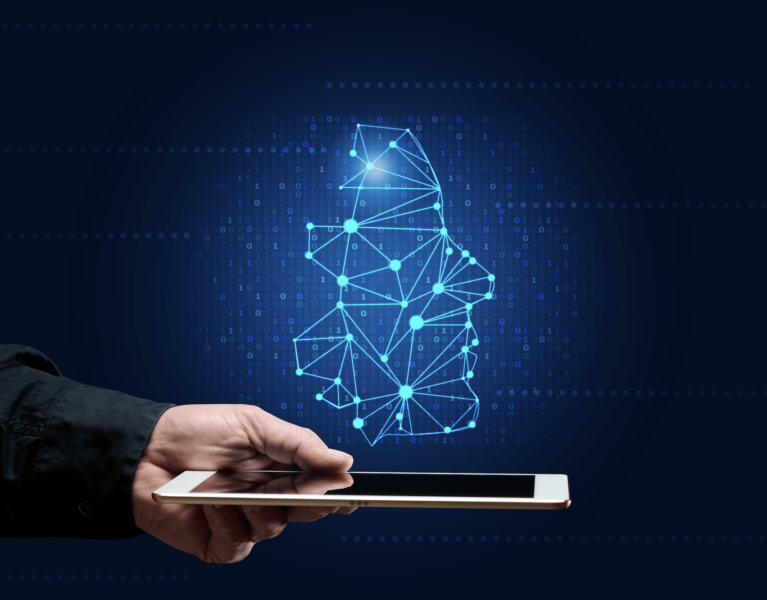A Look at the Pros and Cons of AI on Data Security

The use of Artificial Intelligence (AI) for cybersecurity is a fast-growing trend that presents a multitude of benefits, ranging from swift threat detection to improved incident responses. Incorporating AI into your cybersecurity pratices can be a game-changer for ensuring your organization is able to detect cyber threats and address them in a timely fashion.
However, the use of AI in the tech world also raises potential concerns, such as privacy breaches, a lack of transparency, and job displacement. Businesses must weigh the pros and cons of using AI for data security.
Opportunities
The most significant benefit of utilizing AI in your cybersecurity processes is its ability to rapidly detect and respond to threats. Systems enhanced by AI can meticulously analyze large datasets, discerning patterns and deviations that may be red flags for potential cyber attacks. AI can make threat detection faster and more precise, while sophisticated cyber attacks might slip through the cracks of conventional security systems.
One of the most prevalent cyber threats, phishing, continues to plague organizations worldwide. In a phishing attack, the attackers impersonate reputable entities to deceive victims into divulging sensitive information, such as login information. By utilizing AI, businesses can proactively thwart these attacks before they can even happen. AI systems can sort through data and identify patterns indicative of phishing attempts. Moreover, AI can be an effective gatekeeper, flagging suspicious emails before they enter a potential victim’s inbox.
Another advantage of using AI for cybersecurity is its ability to improve incident response. Through the power of AI algorithms, the traditionally time-consuming and labor-intensive tasks associated with handling security incidents can be much more streamlined.
This collaboration between AI and human IT expertise accelerates incident resolution and fortifies the overall cyber defense strategy, ensuring that organizations are better equipped to navigate cyber threats. There’s a good reason why an increasing number of organizations are embracing AI: when utilized properly, it’s powerful, efficient, and cost-effective.
Challenges
While integrating AI into cybersecurity offers remarkable advantages, it also raises some significant concerns, such as the potential for privacy violations. AI-driven security systems can analyze massive datasets, often encompassing personal and sensitive information.
While essential for threat detection, this capability introduces potential data security issues. Organizations must tread cautiously, ensuring AI-powered security systems maintain transparency in their operations. It is crucial that these systems clearly articulate what data is being collected and how it will be utilized.
Another concern raised by AI is job displacement. With the increasing prevalence of AI in the IT industry, there is the possibility of automating tasks previously handled by human employees. While this can be cost-effective for businesses, it’s essential that organizations retain their skilled workforce. This may involve utilizing their employees in different ways than before since some tasks may be handled more easily and efficiently with AI.
Weighing the Pros and the Cons
Incorporating AI represents a leap toward strengthening our digital defenses in the ever-evolving cybersecurity landscape. It can expedite incident response, heighten threat detection, optimize efficiency, and cut costs.
The negative implications of AI must remain at the forefront of our journey into this AI-driven future. Privacy concerns, a lack of transparency, and potential job displacement should not be taken lightly. Striking a balance between the benefits of AI and potential concerns demands diligence. Organizations must prioritize transparency, accountability, and human oversight in their AI-powered security systems.
Get Assistance From the Experts A cybersecurity expert can help you make the right decisions regarding your data. We are ready to help, so contact the NCS Global team today.